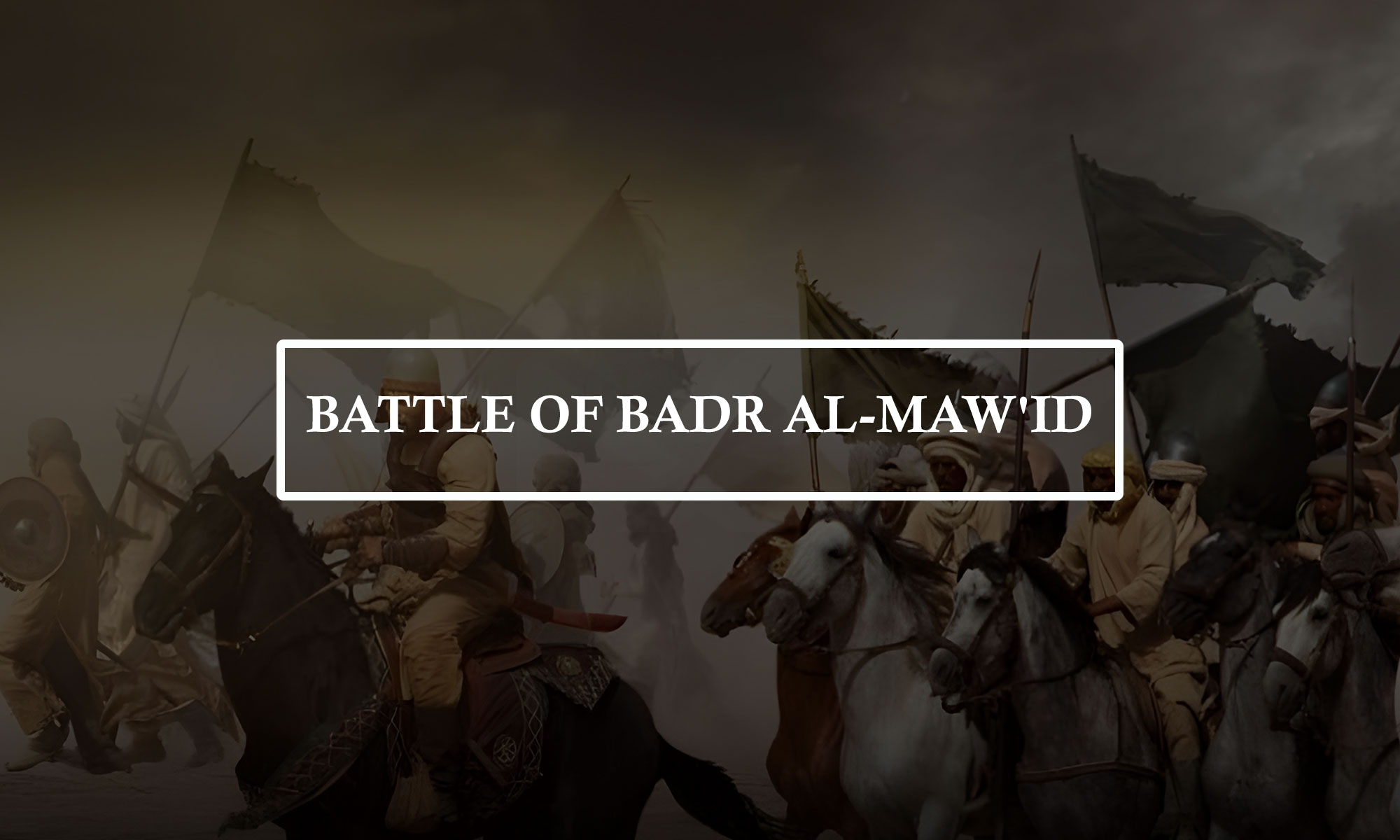Battle of Badr al-Maw'id

The Reason for the Battle of Badr al-Maw'id
When Abu Sufyan, along with his group, left after the Battle of Uhud, he called out, "Your rendezvous is at Badr". The Prophet Muhammad, addressing one of his companions, said, "Indeed, Badr is our meeting point".
On the appointed day, the Prophet chose Abdullah ibn Abdallah ibn Abi Ibn Salul from among the Ansar and marched with 1,500 soldiers. They took ten horses, and Ali ibn Abi Talib carried the flag. The Prophet camped at Badr, waiting for Abu Sufyan.
The Departure of the Prophet
Abu Sufyan left Mecca at the head of a force consisting of either 3,000, 2,500, or 1,000 soldiers. His aim was not only to intimidate the Muslims but also to prevent them from leaving so they would be blamed for the non-meeting.
Naim bin Mas'ud Spreads Rumors
Abu Sufyan sent Naim bin Mas'ud to spread false information among the people of Medina. The hypocrites and Jews assisted him in this task. They all claimed that the Prophet Muhammad would not escape from this assembly. This misinformation played a role in the events.
Abu Bakr and Umar's Advice
Abu Bakr and Umar advised the Prophet to proceed to Badr, not wanting to be seen as retreating, as this would be seen as cowardice. The Prophet agreed and announced his departure, saying, "By the One in whose hand is my soul, we will go out even if no one goes with us".
The Prophet's Departure to Confront the Enemy
The Prophet called the people to go out. He was joined by 350 fighters, and they set off to Badr. The Prophet reached Badr with his army and waited for the Quraysh for eight days. However, they didn't come as they had returned due to fear of a real confrontation. They came up with various excuses, one of them being the scarcity of resources during a famine.
Results of the Battle of Badr al-Maw'id
The result of this expedition was that the Quraysh fled in disgrace and defeat while the Muslims returned victorious. This led to the humiliation of the foremost enemy, who was the strongest force in the Arabian Peninsula, with the largest and most well-equipped army. The Quraysh, who had previously challenged the Muslims and escaped from the confrontation, now struck fear into the hearts of the tribes and resulted in the expulsion of some Jews. The Battle of Uhud did not break the spirit of the Muslims. One of its consequences was that men from the Arab tribes surrounding Medina pledged allegiance to the Prophet.